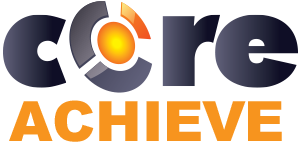LMS and Compliance with Ethical Standards
July, 13 2023
Other posts:
Enhancing Team Dynamics for Effective Group Decision-Making with LMS Integration
Organizations increasingly rely on collaborative efforts to solve complex problems, innovate, and adapt to change, but how do we ensure that collaboration is happening.
Maximizing Small Business Potential with Training Technology
Training technologies can push small businesses ahead of their competitors, but what are the factors that go into choosing the right technology?
Unlocking Employee Potential: The Transformative Benefits of an Interactive Learning Management System (LMS)
Interactive training allows for unlocking employee potential, but how is it done?
Building a Robust Sales Pipeline with Training
Every organization wants a streamlined sales pipeline, but building one requires a series of interlocking activities with one of the most important being training.
Strategies for Adapting In-Person Training to Online Platforms
Online training is one of the most flexible ways of delivering training across organizations, but how do you even begin to adapt in-person training into online?
Ethical dilemmas, no matter how big or small, happen everyday, it's all a matter of the response.
In today's complex and interconnected world, organizations face increasing scrutiny regarding ethical conduct. Compliance with ethical standards is not only a legal and moral imperative but also essential for maintaining trust, reputation, and sustainable success. A Learning Management System (LMS) can play a pivotal role in ensuring that employees receive training and resources to understand and adhere to ethical guidelines. An LMS can support and enhance the ethical standards of the people within organizations.
Centralized Distribution of Ethical Training
An LMS allows organizations to centralize the distribution of ethical training programs and resources. This ensures consistent and standardized training across the organization, regardless of location or department. By providing a single platform for accessing ethical training materials, organizations can ensure that every employee receives the necessary knowledge and guidance to comply with ethical standards.
Customized Training Modules
An LMS offers the flexibility to create customized training modules that align with an organization's specific ethical standards and policies. Organizations can develop interactive modules, quizzes, and case studies that address ethical dilemmas employees may encounter in their roles. Ethical situations can be complex, but they often have dire consequences for organizations whenever employees contradict a company’s values. With an LMS, companies can tailor their training to match the organization’s values and ensure that employees know what their organization represents.
Regular Training Updates
Ethical standards and regulations evolve over time, requiring organizations to stay up to date with the latest compliance requirements. An LMS facilitates the regular updating of ethical training modules and resources. This ensures that employees receive current information and guidance, reflecting the changing landscape of ethical practices. All updates to an LMS will be organization-wide immediately after uploading—a much easier process than updating traditional training methods.
Tracking and Reporting Compliance
One of the significant advantages of an LMS is its ability to track and report compliance with ethical training. LMS platforms offer robust analytics and reporting features, allowing organizations to monitor employee progress, completion rates, and assessment scores. This data provides valuable insights into the effectiveness of the ethical training programs and identifies areas where additional support may be needed. It also enables organizations to demonstrate compliance with ethical standards to internal stakeholders and regulatory bodies.
Reinforcement through Continuous Learning
Ethical compliance is not a one-time event but an ongoing process. An LMS supports continuous learning by offering resources that reinforce ethical standards beyond initial training. Organizations can provide access to case studies, industry best practices, and scenario-based simulations that challenge employees to apply ethical principles in real-world situations. Continuous learning will only serve to strengthen and reinforce these ethical teachings.
Ethical Discussion Boards and Communities
An LMS can help employees refine and strength their ethical training via discussion boards or meetings where employees can talk about and through their beliefs. By encouraging open dialogue and collaborative problem-solving, organizations foster an ethical learning environment that promotes collective understanding and adherence to ethical standards.
Ethical Assessment and Certification
An LMS enables organizations to administer ethical assessments and certification programs to validate employees' understanding of ethical standards. These assessments can be integrated into the LMS platform, allowing employees to demonstrate their knowledge and competence in ethical decision-making. By providing certifications or badges upon successful completion, organizations reinforce the importance of ethical compliance and motivate employees to uphold ethical standards.
Compliance with ethical standards is crucial for organizations to operate ethically, maintain trust, and uphold their social responsibility. An LMS offers a powerful tool for organizations to ensure consistent, customizable, and ongoing ethical training. By centralizing training distribution, customizing content, tracking compliance, fostering continuous learning, and creating engagement opportunities, an LMS helps organizations create an ethical learning environment that promotes ethical decision-making and behavior. Through regular updates, tracking and reporting capabilities, and the facilitation of ethical discussions, an LMS empowers organizations to strengthen their commitment to ethical standards. By leveraging an LMS to support compliance with ethical standards, organizations can foster a culture of integrity, trust, and responsible business conduct.
Get started with CoreAchieve today for free.
Photo by Google DeepMind on Unsplash

Leave comment: